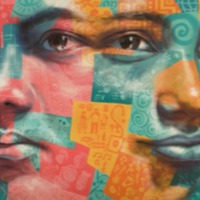
It was extremely difficult. We travelled for three days without food and water. It was hot and dusty, but also cold. There is nobody at all in the Sahara.
I want to tell people, don’t think that Libya is good! There are bandits there. It's a matter of luck whether you get out of there, even if you paid. It's agonising. You can be stuck there for two years. They’d send you back in mid-journey and tell you to pay again. We’ve seen how bad Libya is. I was there for a year and five months inside a warehouse. We were given good once a day.
When we arrived in Libya, they told me to pay USD 1,600. I couldn’t pay that much money. They were torturing us. They were dropping hot melted plastic on our backs, beating us with plastic rods, to make us pay. In the end, when it’s paid, they demand another USD 2,400 for crossing the sea.
[…]
Once we arrived at the coast to get on the boats bandits showed up twice and started shooting and told us to pay, but we couldn’t pay.
[…]
So, generally dear brothers, I want to say enough is enough.
What I want to say is, those who are in Egypt, Sudan or Ethiopia, when they see those in Europe taking pictures on or next to a motorbike and next to a car which is not theirs. Taking pictures next to a car as if they won it, as if they might be able to own it. I can see them on Facebook and TikTok. What I want to tell them is please, that’s enough!
Narrative produced by Telling the Real Story, an initiative facilitated by UNHCR The UN Refugee Agency
Original narrative can be found at https://www.tellingtherealstory.org/en/stories/video/three-eritreans-story/









